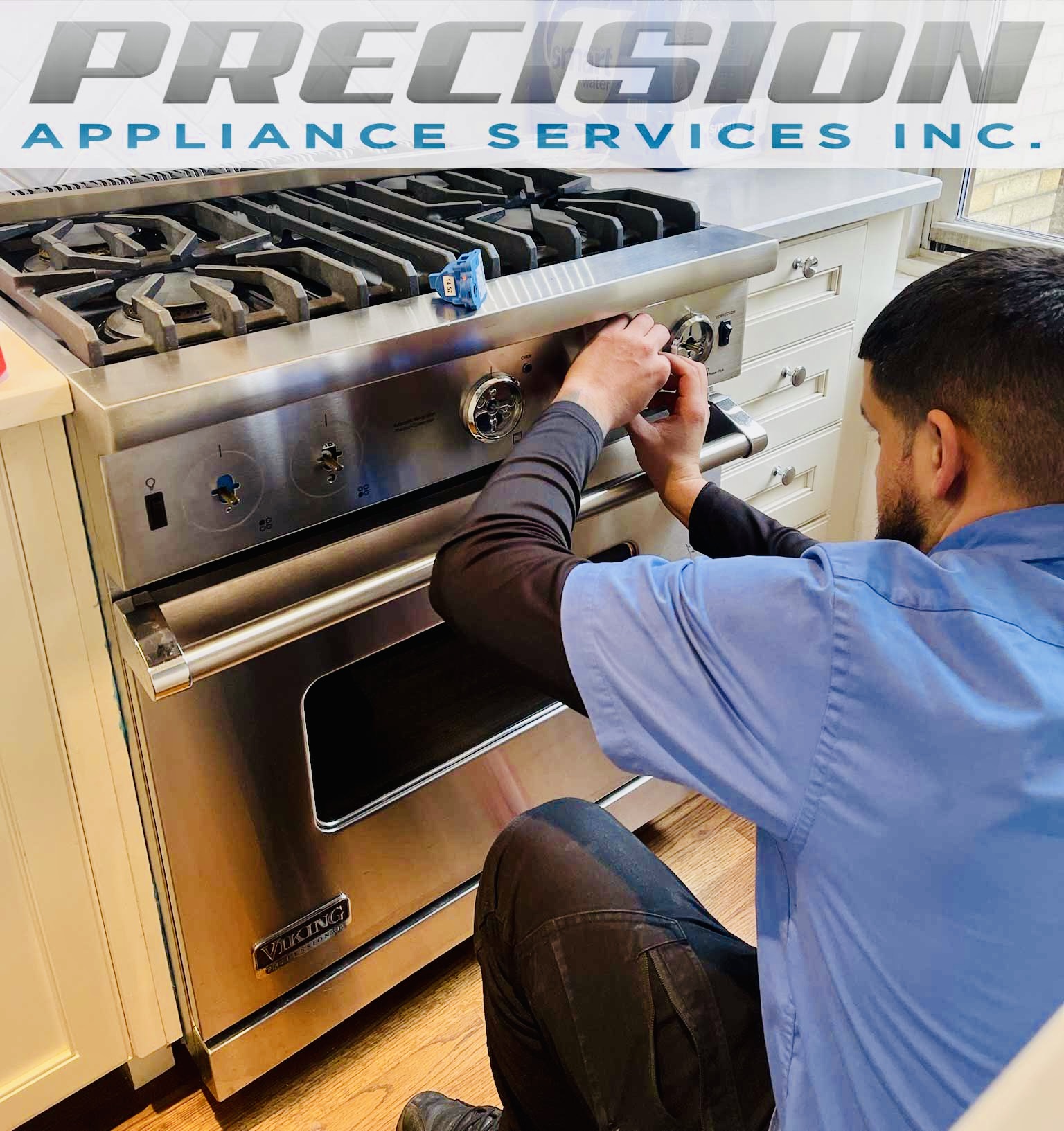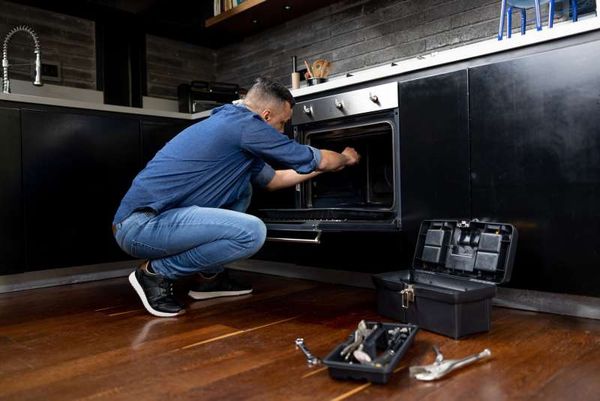The Ultimate Overview to Understanding Home Appliance Fixing in your home
When your fridge stops cooling down or your oven rejects to heat, it can really feel frustrating. Understanding device repair work in the house can save you money and time. You'll learn to acknowledge signs and symptoms, make use of necessary devices, and comply with an organized troubleshooting procedure. Before you start, there are important safety and security preventative measures you require to take right into account. What are one of the most usual troubles, and just how can you fix them? Let's check out the fundamentals.
Common Appliance Problems and Their Symptoms
When your appliances start acting up, it's important to acknowledge the indications early. Neglecting them can cause bigger problems and costly repair work. If your refrigerator isn't cooling properly, you might see cozy areas or condensation developing. This could indicate a falling short compressor or an obstructed vent.Your dish washer may show issues with unclean recipes or uncommon noises throughout cycles. If you listen to grinding or clanking, it's time to investigate.A washing equipment that won't spin or drain can leave you with soaked laundry, recommending a clogged up drainpipe or a malfunctioning pump.Lastly, if your oven's temperature level appears off or it takes forever to pre-heat, you may be dealing with a faulty thermostat. By remaining alert to these signs and symptoms, you can attend to issues prior to they intensify into significant fixings.
Vital Tools for Appliance Repair
When you're taking on device repairs at home, having the right tools is vital. Fundamental hand tools like screwdrivers and pliers will help you disassemble and repair different home appliances, while electric screening tools assure you're functioning securely with circuitry. Allow's go over what you need to get going on your repair service journey.
Standard Hand Tools
Having the right tools is crucial for reliable device repair service in your home. Begin with a reputable screwdriver set, including both flathead and Phillips kinds, as screws prevail in home appliance assembly. Pliers are also vital; they assist with gripping, twisting, and reducing cables or little components. A set of needle-nose pliers can reach tight places quickly. You'll need an excellent adjustable wrench for tightening or loosening up nuts and bolts. An energy blade is helpful for puncturing product packaging or insulation. Ultimately, don't neglect a tough workbench or surface area to safely arrange your devices and parts. With these standard hand tools, you'll be well-prepared to take on most home appliance repairs that come your means.
Electric Testing Devices
Along with basic hand devices, electrical screening gadgets play a crucial duty in home appliance repair service. These devices assist you diagnose electric concerns and guarantee devices work safely. A multimeter is essential; it measures voltage, current, and resistance, permitting you to identify troubles swiftly. A non-contact voltage tester is another must-have, allowing you detect online cords without making direct contact, boosting your safety and security. Secure meters are wonderful for measuring current flow in cords without separating them, conserving you effort and time. Furthermore, circuit testers can promptly inspect if outlets are working properly. By utilizing these gadgets, you'll enhance your troubleshooting process and improve your repair skills, making device maintenance a great deal simpler.
Step-by-Step Overview to Diagnosing Home Appliance Issues
When your appliance acts up, it can be aggravating, but identifying the issue does not have to be frustrating. You'll learn to determine typical issues and apply effective repairing methods. Let's stroll with the actions to obtain your home appliance back in working order.
Usual Device Issues

Fixing Strategies Explained

Fixing Major Kitchen Home Appliances: A Closer Look
Have you ever before questioned how to take on typical issues with your kitchen area home appliances? Fixing major cooking area home appliances like fridges, stoves, and dishwashers can be easier than you assume. Start by identifying the problem-- whether it's a refrigerator not cooling down or an oven that will not warm. Usually, a simple reset or checking the source of power can fix the issue.For refrigerators, tidy the condenser coils and check the door seals. If your oven's not heating, check the home heating component and thermostat. Dishwashing machines might simply require a tidy filter or a reset to obtain them back in activity. Always disconnect the appliance before diving right into repair work to assure your safety.Don' t fail to remember to speak with the individual manual for certain fixing ideas associated with your design. With a little persistence and the right tools, you can confidently take on device repair work and save money at the same time!

Troubleshooting Washing Equipments: Tips and Techniques
When your laundry appliances begin breaking down, it can really feel overwhelming, yet troubleshooting them doesn't need to be a headache. Begin by examining the power supply. Validate the home appliance is connected in and the outlet is working. Next visit site off, check the door or cover button; a faulty button can stop the device from operating.For washers, if it's not spinning, look for out of balance loads. Rearranging the clothing could resolve the concern. If your dryer isn't heating, tidy the lint filter and inspect the vent for blockages.Listen for unusual noises; they can show a trouble. If your device is dripping, examine the tubes for fractures or loose links. Record any kind of error codes displayed on electronic displays, as they can direct you in determining the problem. Finally, get in touch with the individual handbook for certain troubleshooting pointers associated with your design.
Safety Precautions to Take Throughout Repairs
Before you start any type of device repairs, it's vital to focus on safety and security to avoid crashes or injuries. Initially, unplug the device or switch off the breaker to ensure no power reaches it while you function. Usage protected tools to minimize the risk of electric shock. Use safety and security goggles and gloves to secure on your own from sharp edges or debris (Maytag Washing machine repair Dependable Refrigeration & Appliance Repair Service).Make certain your work area is neat and well-lit, so you can see what you're doing. Keep children and pets far from the location to prevent interruptions and possible threats. If you're handling gas home appliances, be additional mindful; look for leakages before proceeding.Take your time, and don't rush through repairs. If you really feel unpredictable regarding any step, it's much better to stop and research study than to company website guess. Complying with these safety measures will certainly help produce a more secure setting for your DIY appliance fixing job
When to Call a Specialist for Help
How do you recognize if it's time to employ a specialist for home appliance repairs? If you've tried fundamental troubleshooting without success, it's a clear sign. For instance, if your appliance still won't start or reveals unusual noises after resetting it, don't be reluctant to look for professional help.When you see leaks, smoke, or shedding scents, prioritize safety and security and call a professional promptly. These issues can bring about more significant damages or position risks to your home.Also, if your appliance is under warranty, speaking to a specialist is commonly the very best path. They can guarantee that repair services won't invalidate your warranty, saving you money in the lengthy run.Finally, if you're not sure or awkward with intricate repair work, it's smart to leave it to the experts. Remember, dealing with challenging issues without the appropriate experience can cause costly blunders. Trust fund an expert when in doubt!
Frequently Asked Inquiries
How Can I Avoid Appliance Troubles in the Future?
To avoid home appliance issues in the future, you ought to perform regular maintenance, check for deterioration, tidy filters, and stay clear of overloading. Staying proactive will help extend their life-span and maintain them running smoothly.
What Are the A Lot Of Usual DIY Appliance Repair Work Mistakes?
You might overlook safety preventative measures, skip fixing steps, or use inaccurate devices when trying do it yourself home appliance repair services. Hurrying the process or ignoring producer guidelines can bring about more significant problems and pricey blunders. Remain individual and notified!
How Do I Know if a Component Needs Replacement?
You can tell if a component requires replacement by looking for unusual sounds, leakages, or inconsistent performance. If the appliance battles to run correctly or shows noticeable damages, it's likely time for a substitute.
Can I Make Use Of Generic Parts for Device Repairs?
Yes, you can utilize common parts for device repair work, however establish they work - Lg Dryer repair near me Dependable Refrigeration & Appliance Repair Service. Common components might conserve you cash, but they could impact performance or long life, so weigh your choices meticulously before choosing
What Warranties Cover Appliance Fixes?
Most device warranties useful site cover fixings for manufacturing issues, but they commonly leave out damages from abuse. Check your service warranty terms thoroughly, as some might require using licensed technicians and original components for protection to remain valid.